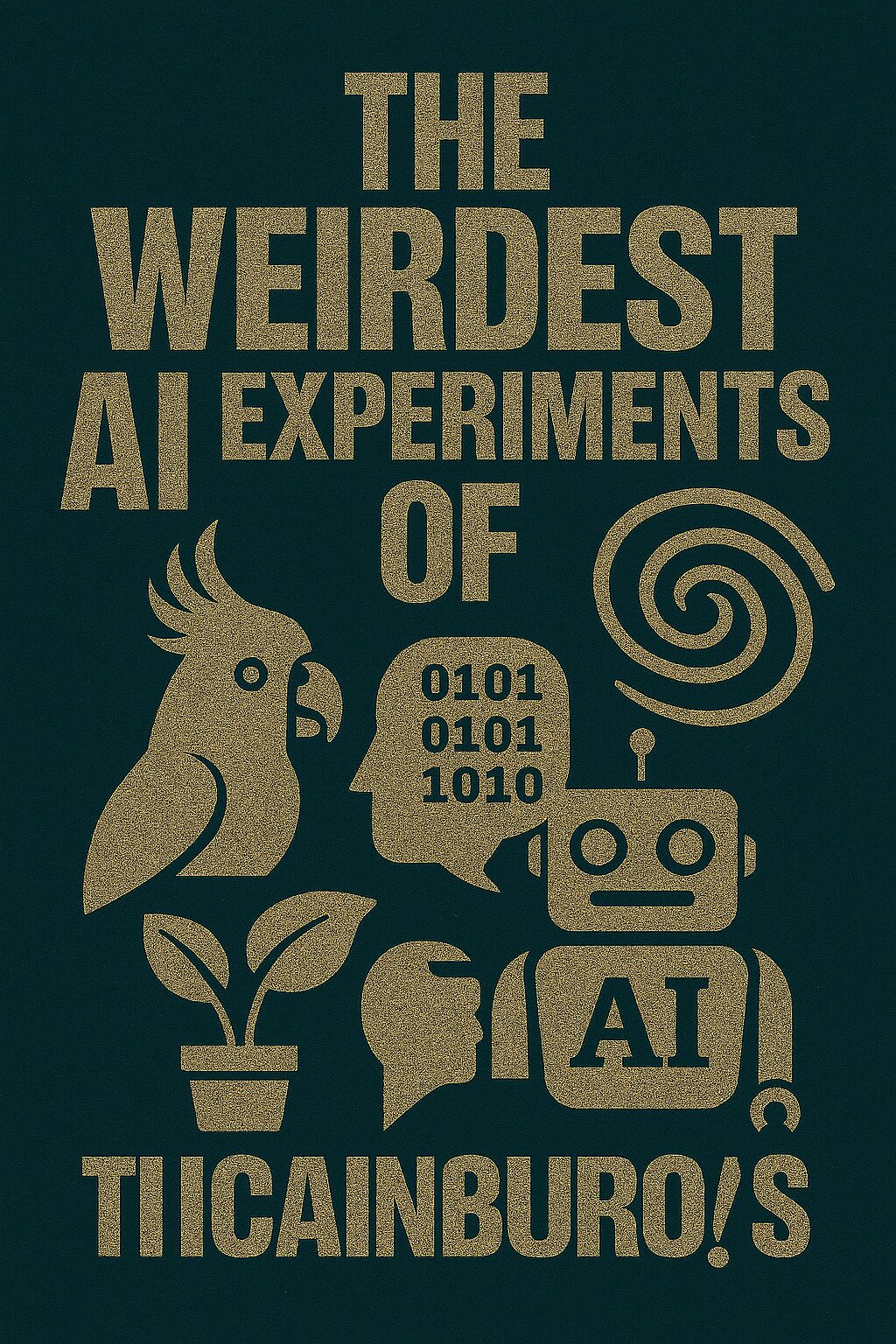Introduction: When AI Gets Strange
Artificial intelligence has become a staple of everyday life, powering everything from search engines to smart homes. But in 2025, researchers, startups, and curious users are pushing AI into truly bizarre territory. These experiments aren’t just unusual—they challenge our understanding of consciousness, ethics, and the boundaries of machine intelligence. Welcome to the weirdest AI experiments of the year.
🧪 1. AI-Powered Pet Psychologists
Yes, it’s real. In 2025, startups are using AI to interpret pet behavior and simulate therapeutic conversations. By analyzing vocalizations, movement patterns, and biometric data, these systems claim to offer emotional support for cats, dogs, and even parrots.
- 🐶 AI models trained on thousands of pet videos
- 🧠 Sentiment analysis applied to tail wags and meows
- 📱 Mobile apps offer “chat” sessions with virtual pet therapists
According to , this trend is growing among pet owners seeking deeper emotional bonds with their animals.
🧪 2. Simulated Afterlife Conversations
One of the most controversial experiments involves AI recreating deceased loved ones using voice samples, chat logs, and photos. These “digital ghosts” can hold conversations, share memories, and even evolve over time.
- 🗣️ NLP engines mimic speech patterns and emotional tone
- 🧬 Deep learning models generate personality traits
- 📊 Memory banks simulate life experiences and responses
While some find comfort in these simulations, others raise ethical concerns about grief manipulation and digital immortality.
🧪 3. AI-Generated Stand-Up Comedy for Plants
In a surreal twist, researchers are testing whether plants respond to humor. AI comedians perform routines in greenhouses, using synthesized voices and light-based punchlines.
- 🌱 Light modulation mimics laughter cues
- 🎤 AI scripts tailored to plant growth cycles
- 📈 Growth data analyzed for correlation with comedic exposure
This experiment is part of a broader study on AI’s impact on non-human consciousness and environmental interaction.
🧪 4. AI Dream Interpretation for Inanimate Objects
Can a toaster dream? In 2025, some researchers say yes. AI systems are being used to simulate “dream states” for machines—generating surreal narratives based on usage patterns and sensor data.
- 🔌 Neural nets trained on appliance behavior
- 🧠 Dream-like sequences generated from heat cycles and idle time
- 🎭 Artistic renderings of machine dreams used in digital exhibitions
This experiment blends art, philosophy, and speculative neuroscience.
🧪 5. AI Dating Simulators for Fictional Characters
AI is now helping users date their favorite fictional characters. These simulators use character lore, fan fiction, and personality modeling to create immersive romantic experiences.
- 💘 NLP engines simulate dialogue and emotional arcs
- 📚 Lore-based training datasets ensure character consistency
- 🎮 VR integration allows users to “go on dates” in fantasy worlds
This trend is popular among fandom communities and raises questions about emotional dependency and digital intimacy.
⚠️ Ethical and Social Implications
These experiments may be weird, but they’re not trivial. They raise serious questions about:
- 🧮 Consent and digital identity
- ⚖️ Emotional manipulation and mental health
- 🔐 Data privacy in simulated relationships
- 🧠 The definition of consciousness and sentience
Experts urge caution and transparency as AI continues to blur the line between reality and simulation.
🔑 SEO Keywords to Target
- weirdest AI experiments 2025
- bizarre artificial intelligence projects
- AI pet psychologist
- simulated afterlife AI
- AI dating simulators
- machine dream simulation
- ethical AI experiments
🧭 Conclusion: Intelligence Meets Absurdity
In 2025, AI isn’t just smart—it’s strange. These weird experiments reveal the boundless creativity of human-machine collaboration, while reminding us that intelligence without ethics can lead to unsettling outcomes. The future of AI isn’t just about progress—it’s about perspective.

